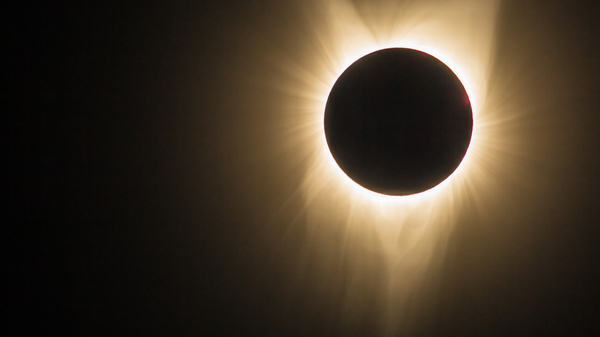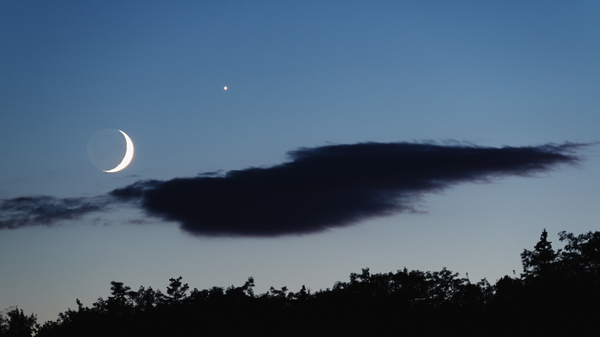Does Ramadan End with a Total Eclipse?
Could the Muslim month of Ramadan be cut short by a solar eclipse? The answer lies in religious translations and the term “New Moon.”

This year’s total solar eclipse appears right at the end of Ramadan, the holiest Muslim month.
©iStockphoto.com/Jorge Villalba
When Does Ramadan End?
To know when Ramadan ends, Muslims wait for the Moon to disappear from the night sky during its New Moon phase. When the Moon reappears as a thin crescent in the evening sky, Ramadan ends and the next Muslim month begins.
More about the Islamic Calendar
This year however, a total solar eclipse will sweep through Australia and South-East Asia on April 20, 2023. The New Moon will block out the Sun, thereby becoming visible a few days before the Crescent Moon can be seen—does this mean that Ramadan will be cut short?
Watch our solar eclipse LIVE stream
Ramadan Will Not Be Cut Short
While it is an interesting idea, the solar eclipse will in fact have no impact on Ramadan. Muslims will likely celebrate Eid al-Fitr on April 22 or April 23, two or three days after the solar eclipse.*
Even though the New Moon is visible during the eclipse it does not count as sighting the new Moon for Muslims. Why is that?
The Muslim rule for finding the beginning and end of the fasting period refers to “sighting the new Moon.” But there’s a catch, as Eng. Qamar Uddin from the Islamic Crescents Observation for the UK explains.
It is the phrase “new Moon.”
“The original word used in Hadith texts (for Moon sighting) is Al-Hilal (الْهِلاَلَ), which means Crescent Moon,” says Qamar Uddin. “However, some of the Arabic translators of Hadith have used 'new Moon' instead of 'Crescent Moon' as they were unaware that New Moon is an astronomical term for the Moon in its invisible phase. On the other hand, the Crescent Moon is the first slither of the Waxing Moon, which can be seen by the human eye. This is what Muslims use to commence the lunar month.”
It’s the Crescent That Counts

When the Crescent Moon is spotted, Ramadan will be over.
©iStock.com/shaunl
Seeing a New Moon during a solar eclipse is not the same as seeing the Crescent Moon after sunset. So, Muslims will have to wait a tiny bit longer to end the fasting.
* Dates for Muslim holidays are hard to predict with absolute certainty, because Muslims rely on Moon sightings to determine the dates of religious holidays. This is why we initially give a tentative date showing the expected holiday date; our researchers then confirm it as soon as Muslim authorities publish official dates.